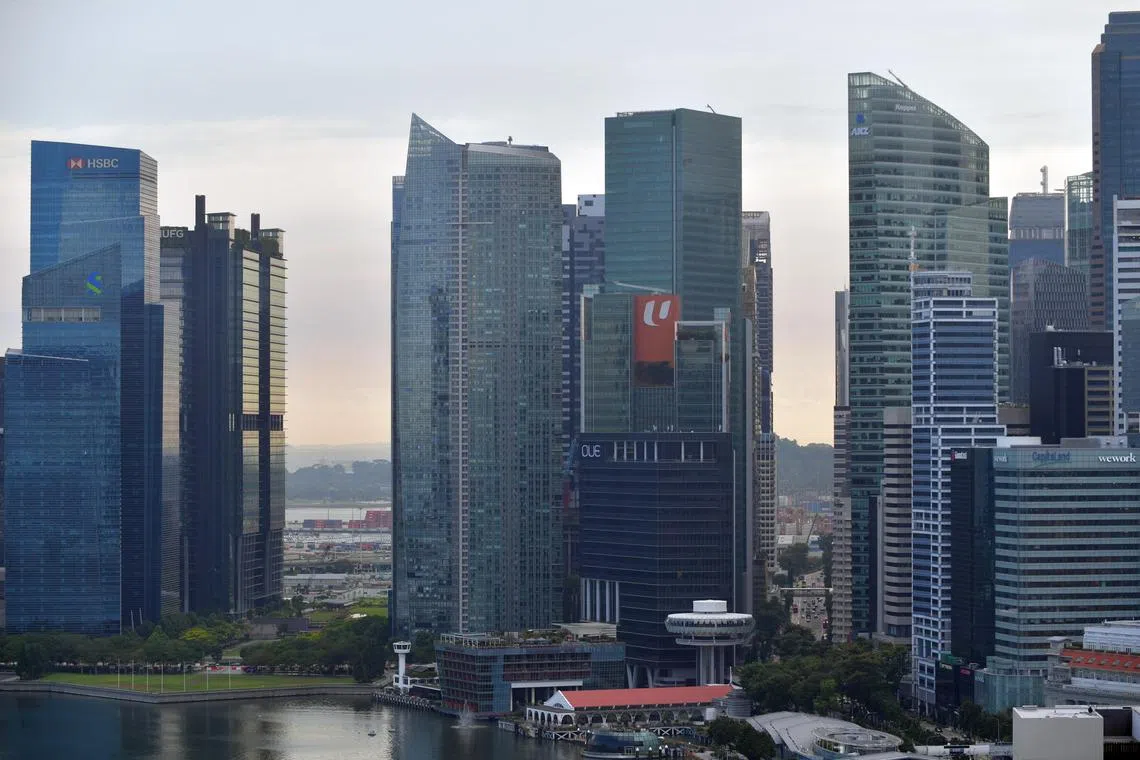As private equity deals plunge in region, Singapore grabs lion’s share: Bain report
Sign up now: Get ST's newsletters delivered to your inbox

The private equity market across the South-east Asian region, including Singapore, suffered a precipitous fall in 2022.
PHOTO: ST FILE
Follow topic:
SINGAPORE – Singapore took the lion’s share of a depressed South-east Asian private equity (PE) market last year when investors did fewer and smaller deals amid worries over rising interest rates and a weakening growth outlook.
The Republic secured US$7.1 billion (S$9.5 billion) of capital investment in companies that are not publicly traded, out of US$13 billion for the whole region, said global management consultancy Bain & Company in its South-east Asia Private Equity Report 2023.
Singapore also led in the transaction count, picking up 97 of the 176 deals done across the region.
However, the PE market across the region, including Singapore, suffered a precipitous fall last year.
PE deal value for Singapore was down 49 per cent from US$13.9 billion in 2021, while the whole of South-east Asia saw a 52 per cent plunge from US$27 billion.
Singapore’s deal count fell 10 per cent from 108 in 2021, while the region as a whole saw a 15 per cent decline from 207 deals previously.
Mr Tom Kidd, partner at Bain, said that it is difficult to forecast the near-term outlook, but Singapore has seen an uptick in deal activity in the first quarter of 2023 versus the fourth quarter of last year.
“The country has a strong innovation engine and that has helped support continued investment in early- and growth-stage companies,” he told The Straits Times. “The resumption of deal making will be supported if some of the broader global macro uncertainties begin to clear.”
Bain said the drop last year in Singapore and South-east Asia was in line with the broader Asia-Pacific region, which saw a 44 per cent fall in deal value, led by Greater China’s 53 per cent plunge.
Deal value in Australia-New Zealand fell 48 per cent, South Korea 39 per cent, Japan 28 per cent and India 25 per cent.
“What we are seeing is a natural reaction to the global macro climate,” said Mr Usman Akhtar, head of Bain’s South-east Asia PE practice, who is based in Singapore.
“Increasing interest rates, a softening economic environment and general uncertainty over the future have all made it more challenging to get deals done,” he noted in a media briefing on the report.
Mr Akhtar said 2022 started well, picking up from a burst of hectic activity in 2021. But the market dropped off sharply in the second half of the year as macroeconomic uncertainties weighed. He said while some rebound in PE activity was evident in the first quarter of this year, overall, the market remains challenged as investors sense a new era of slower growth, persistent inflation, high interest rates and greater uncertainty.
Bain data showed a 27 per cent rise in PE investment deal value and an 8 per cent gain in deal count in the first three months of 2023.
Looking ahead, Mr Suvir Varma, senior adviser of Bain’s global PE practice, said that despite the near-term uncertainty, the long-term outlook for private capital investment in South-east Asia remains positive.
Bain’s analysis showed that macroeconomic conditions in the region have been more resilient than the rest of the Asia-Pacific.
Real gross domestic product growth has continued to be strong, while inflation-related indexes remain moderate. In addition, ongoing geopolitical tensions between the United States and China will continue to create opportunities for South-east Asian businesses, he said.
“South-east Asia remains an attractive place to deploy capital in the long term,” said Mr Varma. “The market fundamentals are there, and investors will be able to find attractive opportunities.”
However, he noted that competition will be intense and, as always, the challenge for investors will be on doing the basics well – sourcing good deals and driving value in their portfolio companies, he said.


